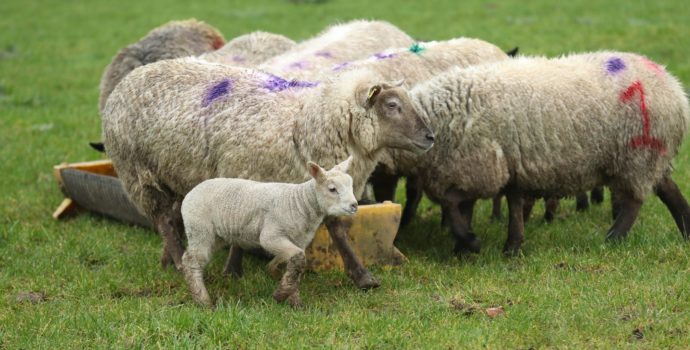Next Generation of Farmers Must Be Encouraged to Make 2020 Happen – IFA

Speaking at a media briefing at the Dublin Horse Show today (Thurs), IFA President John Bryan urged the Government to facilitate the restructuring of farming so the next generation of farmers can drive the production necessary to achieve the growth targets for the sector.
He said, “Next month, our agricultural colleges will be taking in the highest number of students since the mid-1990s. At a time when the forced emigration of thousands of young people is leaving a void in this country, this group will play a key role in rejuvenating the farming sector by lowering the age profile.”
John Bryan said, “With over 25% of our farmers aged over 65, we need to encourage farmers to transfer their farm within their lifetime, and not penalise the person taking over. There must also be incentives to transfer land use and to promote on-farm investment.”
He said, “The Minister for Agriculture Simon Coveney has identified progress in the Food Harvest 2020 Milestones for Growth Report. Farmers require supportive Government policies, through necessary measures and farm structural reform schemes, if the growth targets set out in Food Harvest are to be achieved.”
In a detailed submission to the Minister for Finance Michael Noonan, IFA has set out the measures required to improve the efficiency and competitiveness of Irish agriculture through land mobility and structural change.
He continued, “While IFA is aware of the commitment in both the National Recovery Plan and the EU-IMF ‘Memorandum Of Understanding’ to reform capital taxes by end 2011, any reduction or removal of key farm taxation measures would have the effect of reducing farm transfers to the next generation, impacting on both the productivity and growth potential of the agriculture sector.”
Mr Bryan said, “The taxation measures currently in place are critically important to ensuring reform and growth in the agriculture sector through encouraging intergenerational farm transfers and increasing the availability of land.”
The IFA submission identifies both the structural weaknesses of the Irish agriculture sector today and its potential for growth. This will be achieved through:
Encouraging entry into and exit from farming;
Increasing land mobility; and
Promoting investment in farming.
Key proposals in the submission are:
Retention of Stamp Duty Relief for Young Trained farmers, Capital Gains Tax (CGT) Retirement Relief for qualifying farmers and 90% Agricultural Relief from CAT for recipients who put the land into efficient agricultural use;
Reduction of stamp duty rates for farmland, introduction of CGT relief for farm consolidation and continuation of the land leasing tax exemption scheme; and
Retention of capital allowances and stock relief to encourage farm investment and simplification of the taxation system for sole traders.
Mr Bryan also identified a complementary need for Government to remove or significantly reduce costs from the agriculture sector to improve competitiveness. IFA will be submitting proposals to Government that will result in cost savings, both for individual farmers and the Exchequer, and an overall increase in competitiveness. These actions include:
No increase in carbon tax on farm diesel in line with the commitment in The Programme for Government;
Securing a change to the EU regulation to allow for 1% cross compliance inspection on cattle and sheep I.D. and registration;
The use of trained technicians under veterinary supervision, similar to practices in other EU countries, to reduce meat inspection charges;
EU-wide registration of animal medicines, to reduce the registration cost of medicines for pharmaceutical companies and in turn reduce the cost to farmers; and
Reduction in the level of scrapie testing in meat factories to reflect very low levels of incidence and risk.




